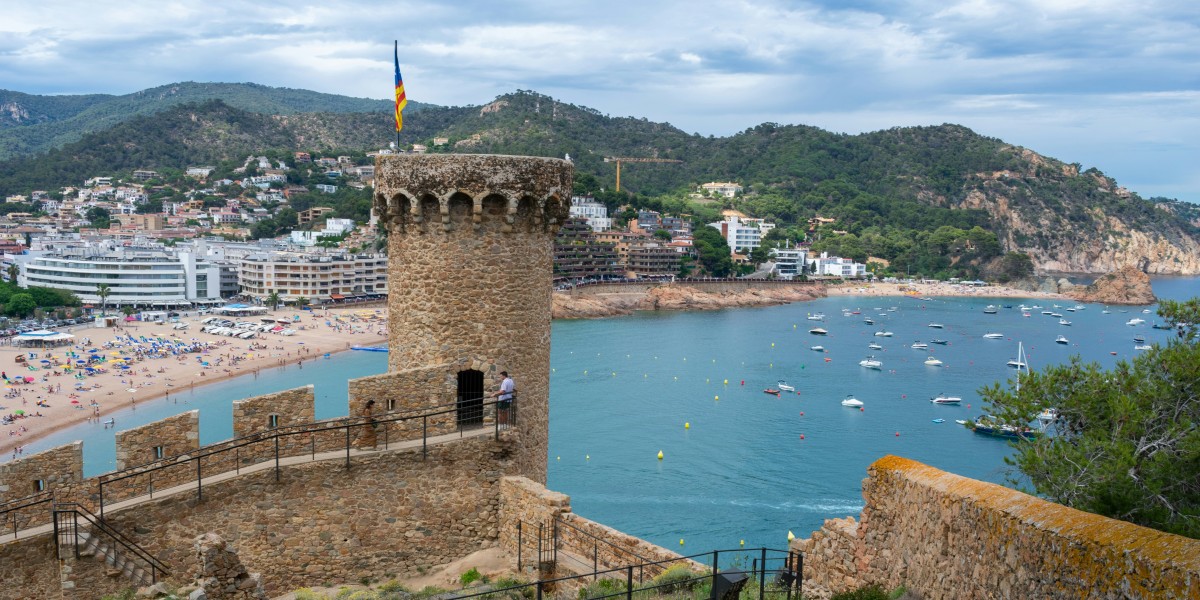
Tossa de Mar is one of those rare Costa Brava towns where time slows down as you wind your way through its cobbled medieval streets and gaze out over the Mediterranean. With a population of around 6,000, living in Tossa de Mar means swapping the bustle for a more local rhythm. Old fishermen’s neighbourhoods, pine-covered hills, and beaches hugged by rocky coves.
The seaside resort attracts a mix of expats, seasonal visitors, and families, all drawn by its tranquil lifestyle and iconic walled old town. If you’ve dreamt about wandering ancient alleyways or paddling in turquoise waters before an afternoon siesta, this corner of Catalonia is worth a closer look.
Is Tossa de Mar a good place to live?
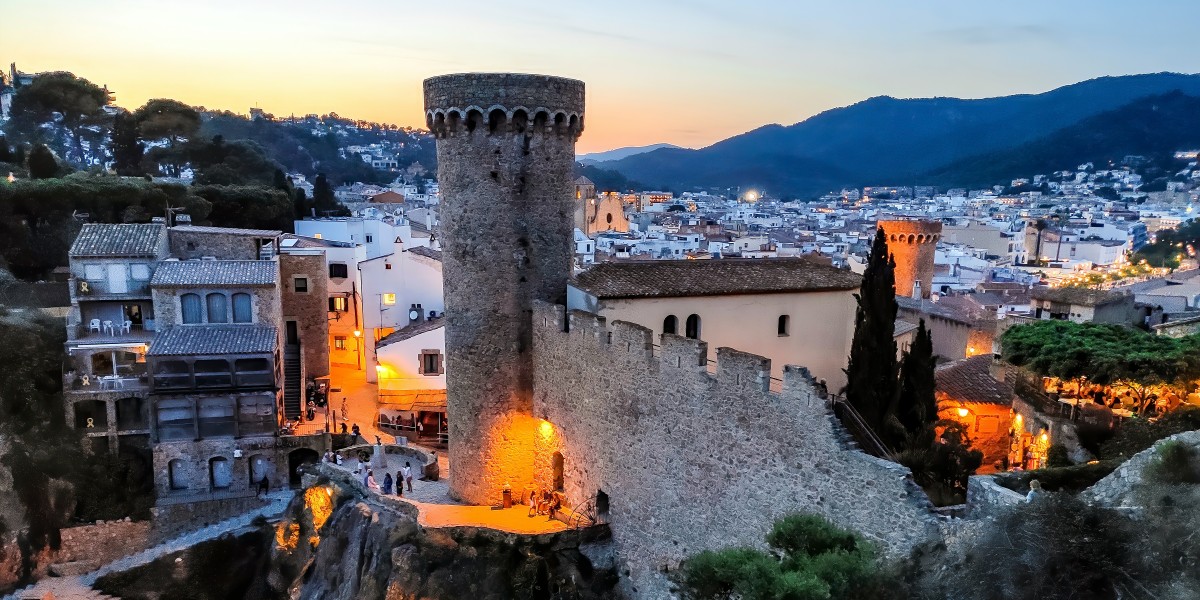
Tossa de Mar is the sort of place that captures you slowly. Morning walks beside medieval ramparts, afternoons with your feet in the sand, and evenings spent sipping a quiet drink. For many, the main appeal of living in Tossa de Mar is this laid-back rhythm—there’s none of the Costa del Sol’s endless hustle, but you do get genuine neighbourhood warmth. Friday mornings mean a wander around the local market. Plus, every summer, look out for the medieval fair and sardana dancing in the old town square.
It's a close-knit community where you’ll soon recognise faces at the bakery or local market, yet the vibe is open enough to welcome newcomers and internationals. Days are shaped by nature: locals swim or kayak out from quiet coves even in February, and the pine-scented hills behind town are perfect for walkers who want a quick escape into green. You’ll also find a thriving, if discreet, creative streak: artists, writers, and musicians have long set up here. F
Living in Tossa de Mar: pros and cons
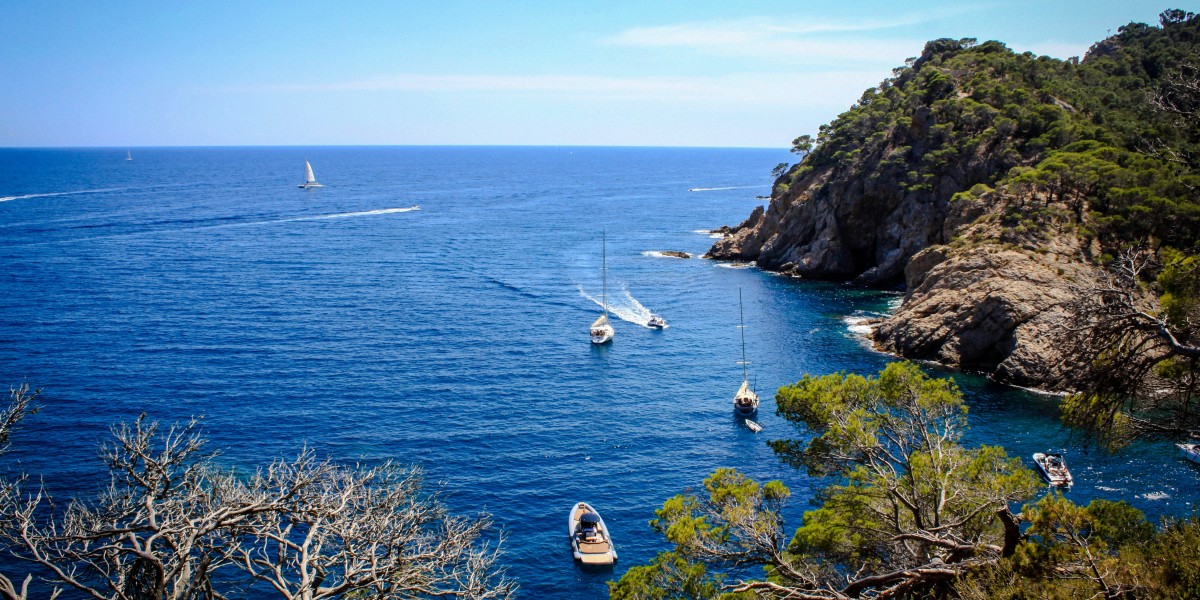
There’s a lot to be said for the lifestyle here, and it's no surprise that many choose to move to this stretch of the Costa Brava. However, it's always a good idea to weigh the good and the bad before relocating.
Some of the perks include:
- Easy-going atmosphere—locals and longtimers genuinely look out for each other.
- The beaches aren’t just for show; you’ll have them to yourself much of the off-season.
- Old town festivals and live music in Tossa de Mar spill into the streets in summer.
Yet, there are quirks:
- Out of season, it can feel surprisingly quiet—some bars and shops close until spring.
- Job opportunities beyond summer tourism are pretty thin unless remote work is your thing.
Cost of living in Tossa de Mar
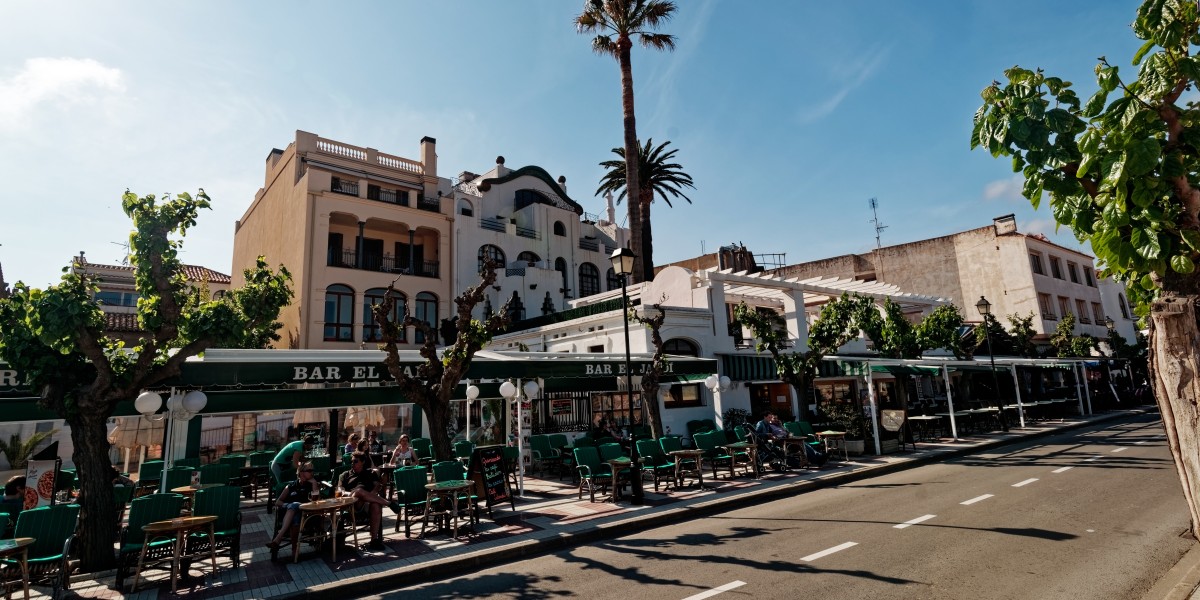
Now, is it expensive to live on the Costa Brava? Tossa tends to cost more than your average seaside town in the area, but catch a deal and you’ll be spending less than in hot spots like Barcelona.
As of April 2025, property prices in Tossa de Mar are around €2,913 per m²—higher than in some other coastal communities. That’s the cost of living in Tossa de Mar if you want sea views and history right outside your door. Rentals in Tossa de Mar start from around €1,200 per month, although many tend to be short-term rentals for holidaymakers. Beachfront and old town listings are rarest and most sought-after, so it pays to look mid-winter for the best deals on long-term lets.
Eating out isn’t as cheap as in Girona or Figueres. Expect €15–20 for a menú, coffees hovering at €2, and utilities for a one-bed flat in the €110–€150 per month range.
Where to live in Tossa de Mar
Tossa de Mar may be compact, but its different neighbourhoods offer surprisingly distinct atmospheres, so it’s worth knowing the lay of the land if you’re eyeing a place to settle.
Vila Vella (Old Town)
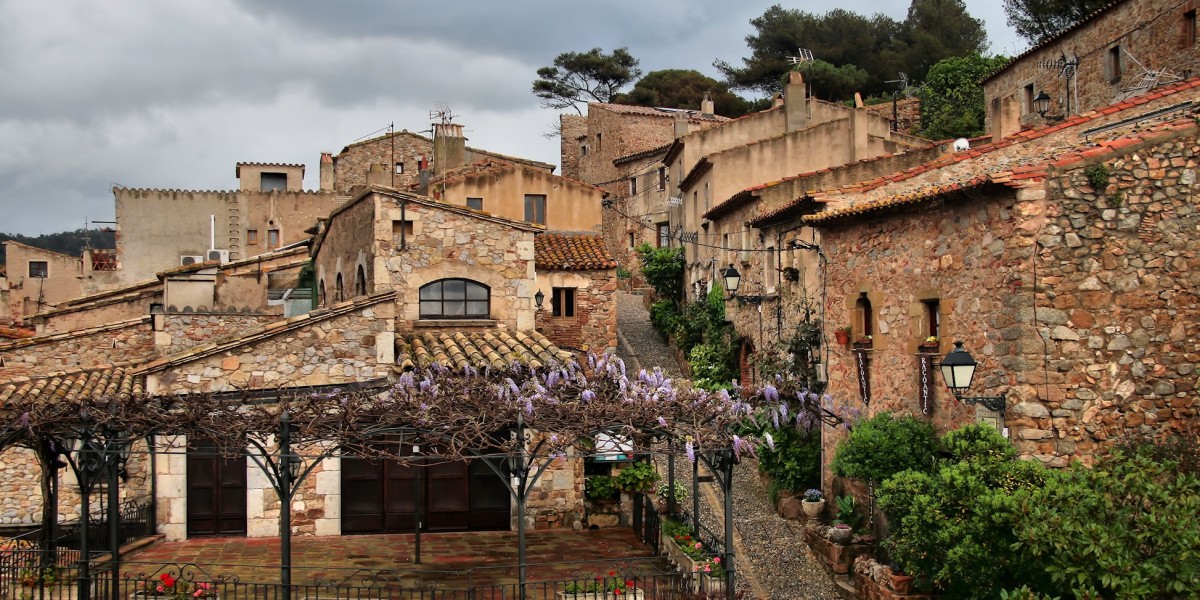
This is Tossa’s medieval heart—a labyrinth of cobbled streets, stone houses, and that iconic walled fortress overlooking the sea. Living here means you’re steps from postcard-perfect lookouts, cafés, and occasional live music under the castle walls. Homes for sale are almost always unique and come at the top end of the price bracket, but it’s a rare chance to live somewhere genuinely historic.
Platja Gran & Town Centre
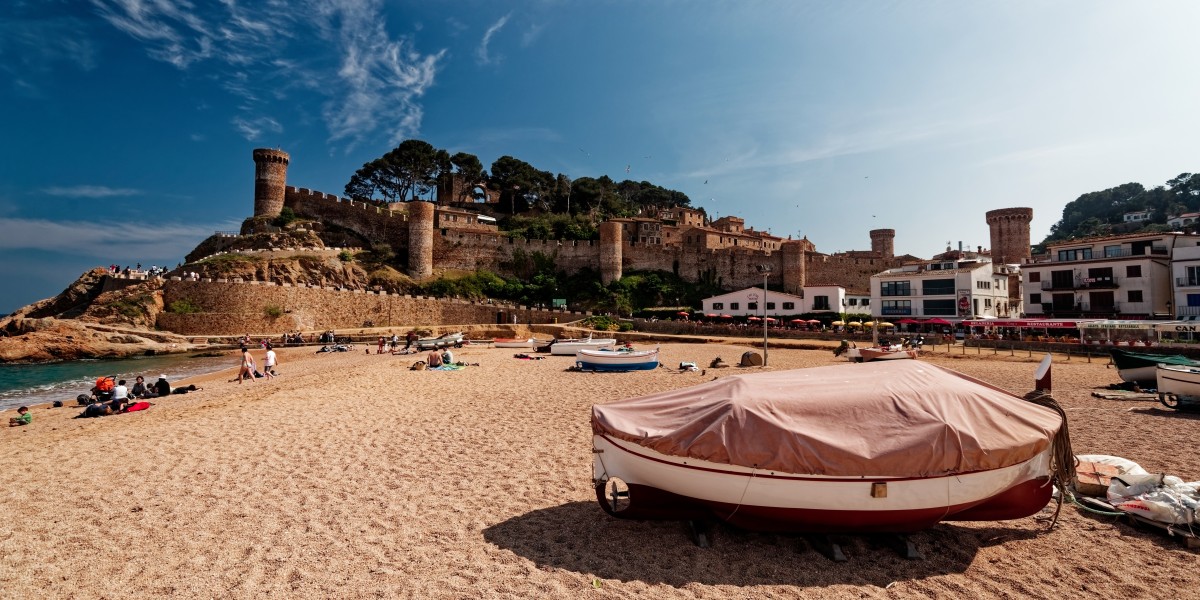
If you want modern convenience with a classic Costa Brava backdrop, the streets just behind Platja Gran (the main beach) give you easy beach access, fresh apartments, and all daily essentials close by. This area is lively in summer with shops, restaurants, and the mellow buzz from beachgoers, but things quieten pleasantly when the season winds down.
Hillsides and urbanisations
For those after peace and panoramic views, the villas and houses tucked into the pine-clad slopes west of town are top picks. Urbanisations like Martossa and Cala Llevado attract families and retirees happy to trade a short drive for privacy and lush surroundings.
Is Tossa de Mar a party town?
The nightlife runs to laid-back beach bars, rooftop terraces, and cafés with the odd live music act. During summer weekends, there’s a buzz, with locals and visitors heading to small venues for jazz, flamenco, or local bands—but you won’t find superclubs or major party zones.
Lloret de Mar or Tossa de Mar?
Lloret de Mar is only 12km down the road and attracts many more tourists, partygoers, and international residents. Lloret has bigger supermarkets, cinemas, bolder nightlife, and isn’t shy about being boisterous.
It's great if you want British bars and clubs until late, but it lacks the character and tranquillity of Tossa de Mar. Tossa is the pick if you’re prioritising charm, a slower pace, and a genuine Spanish town feel. Families and those after a quieter home go for Tossa, but if dancing until 4 am is non-negotiable, head for Lloret.
Living in Tossa de Mar as an expat
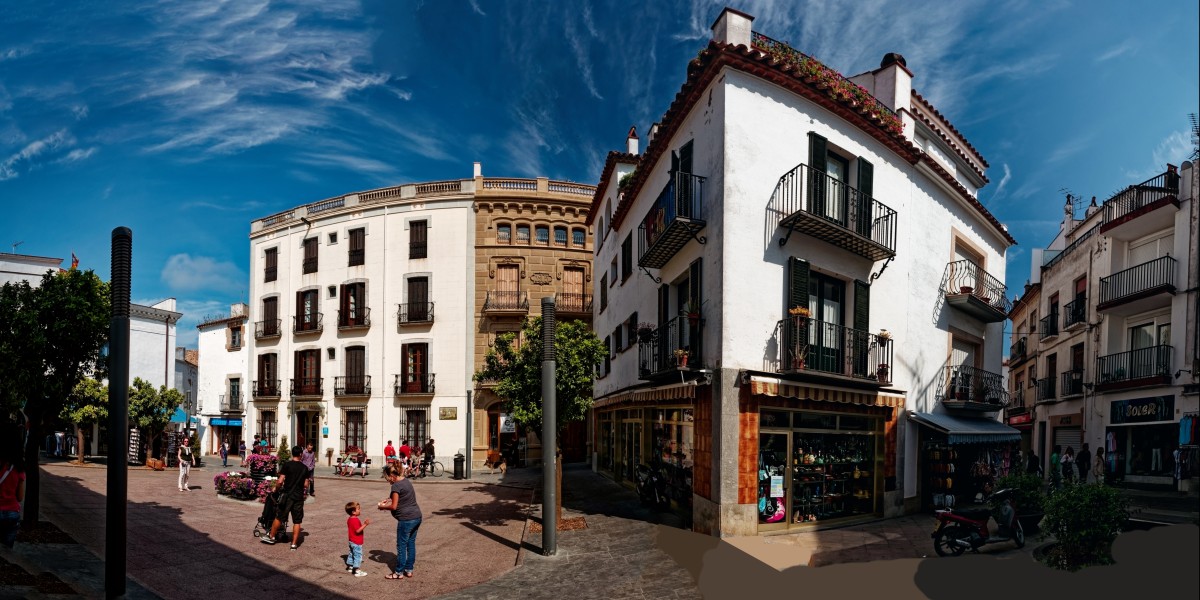
Many expats find Tossa strikes a near-perfect balance. It's less party-heavy than Lloret, yet more authentic and neighbourly, making it a strong contender for anyone looking for the best place for expats on the Costa Brava.
Integration is natural if you blend in and join local cafe clubs or beach clean-ups. You won’t find big international enclaves, but small online groups and plenty of language exchanges offer connection. Summer brings a real buzz. You’ll find live music in Tossa de Mar in beach bars and on open-air stages around the old town.
For fully international schooling, most expats commute to Girona or further up the coast. International School Costa Brava is just a 30-minute drive. Local state schools will help children learn Catalan and Spanish fast, and are a good fit for those settling long-term. You'll also find English-speaking services in Tossa de Mar, such a lawyers and real estate agents.
Although it’s busier from May to September, the rest of the year offers the sort of calm you rarely get in Mediterranean towns. Food markets, local fiestas, and the odd late-night vermut keep things social, but there’s little of the relentless party pace you’d find over in Lloret.
Moving to Tossa de Mar
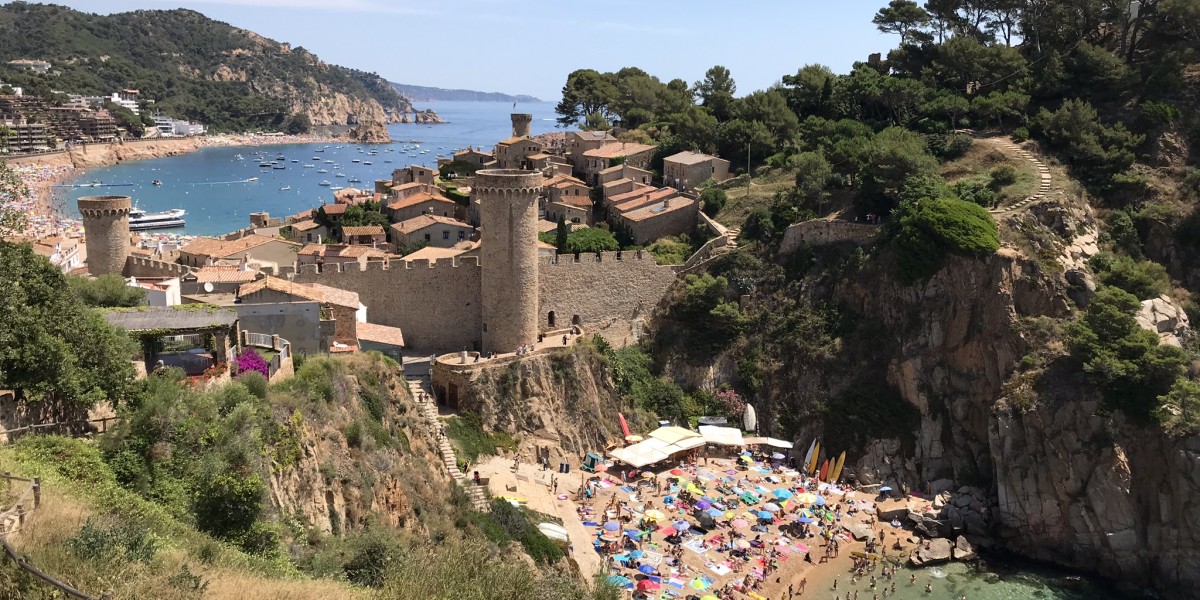
Making the leap to Tossa de Mar often means swapping city routines for a calmer, more community-focused way of living.
While the paperwork has its usual Spanish quirks—think padrón registration at the town hall, and possibly some patience at the local Ayuntamiento—locals and resident expats are generally happy to offer advice.
Day-to-day life here naturally revolves around the season. Expect a lively, sociable summer and a much slower, neighbourly winter where everyone seems to know everyone else. Supermarkets and shops will cover the basics, with specialist stores and bigger retail options just down the road in Lloret or Girona. For transport, it’s worth noting that Tossa isn’t on a direct train line, so most residents rely on buses or their own car for commuting or travelling further afield.
One of the best tips for integrating is to join local groups—be it a hiking club, beach clean-ups, or language exchange sessions over coffee at a seaside bar. Getting involved with annual festivals or helping out at local events is a good way to meet neighbours and feel part of the town’s rhythm. If you're unsure as to whether Tossa de Mar is the place for you, you could always spend a holiday there to dip your toes in and see if it's right.
